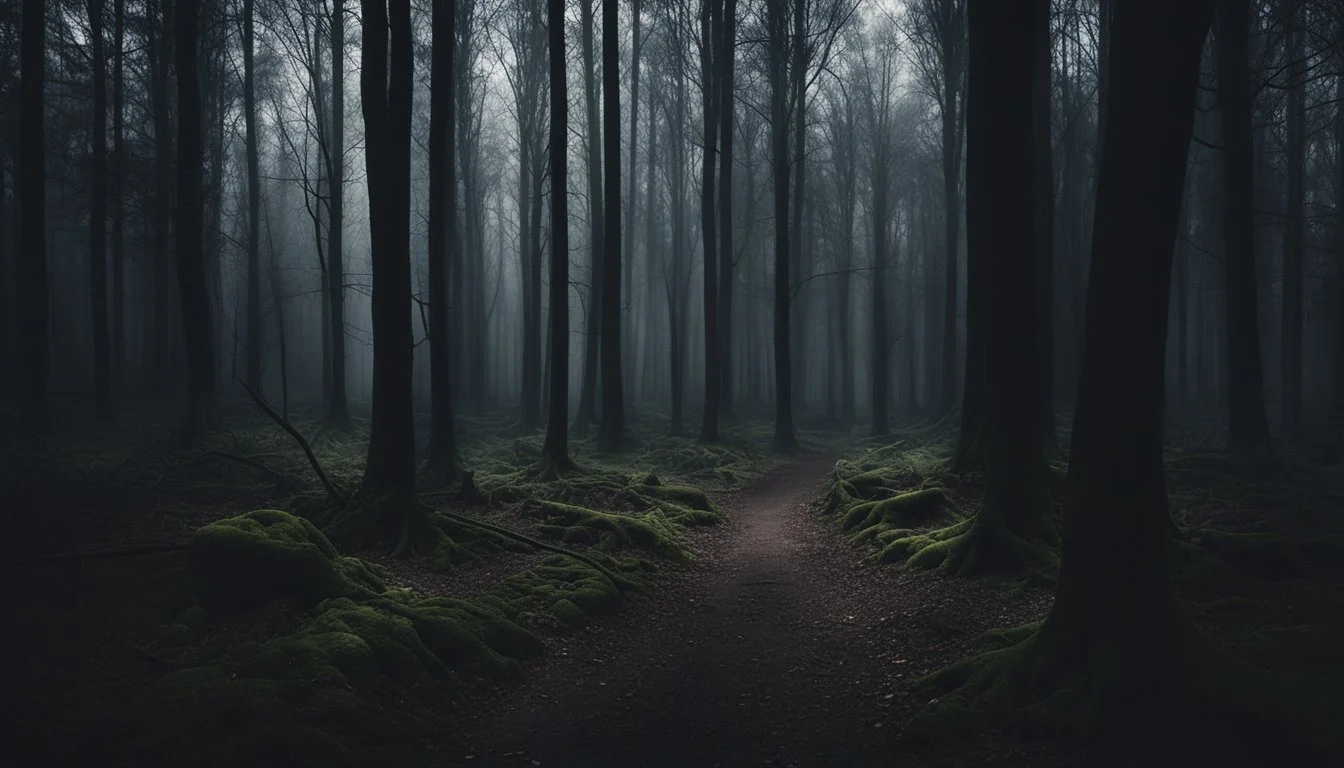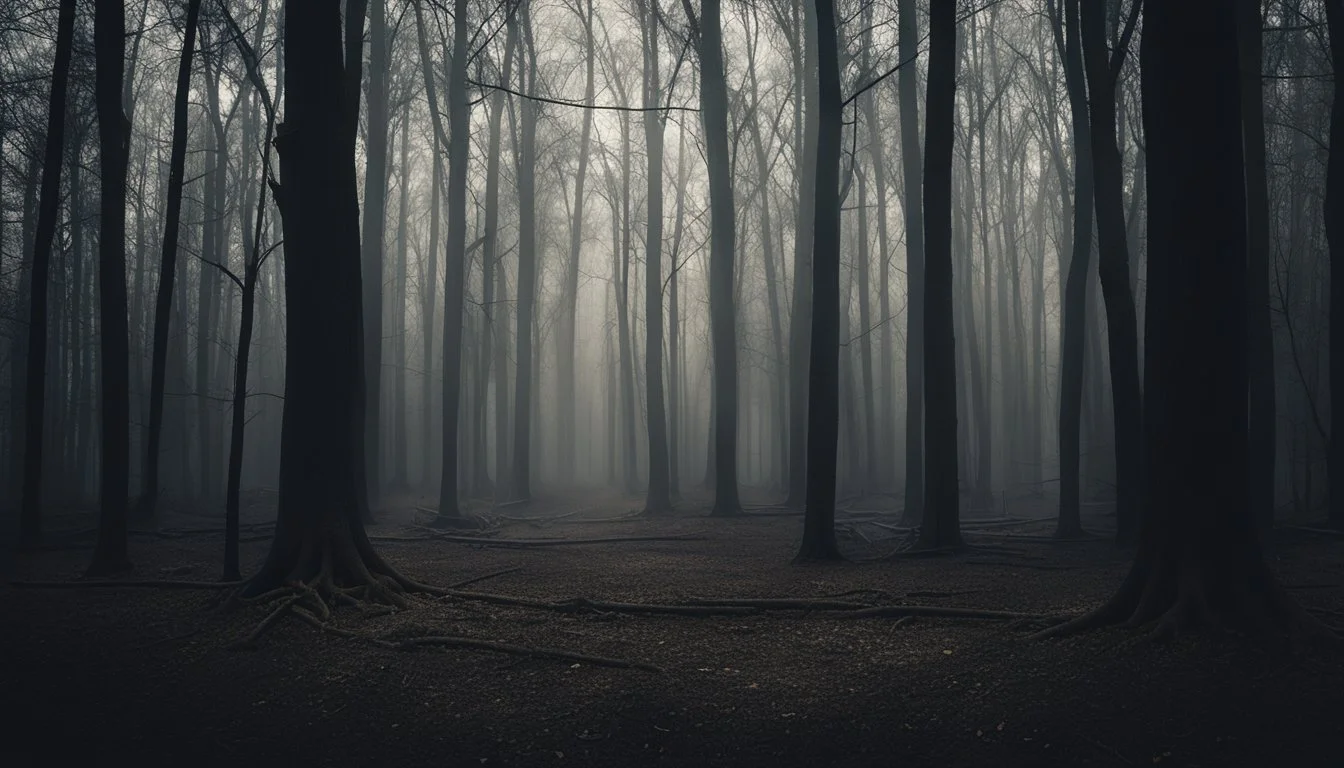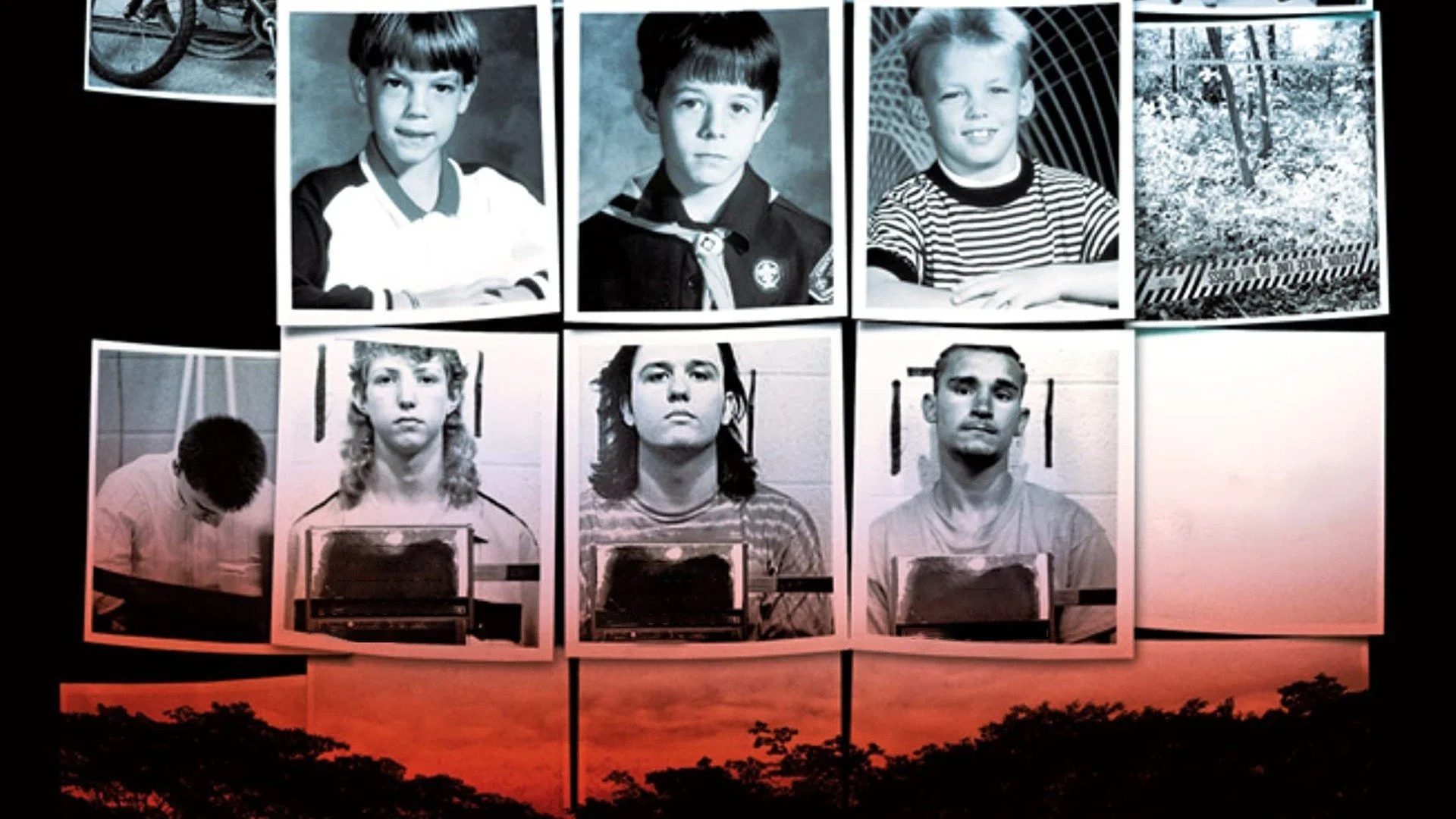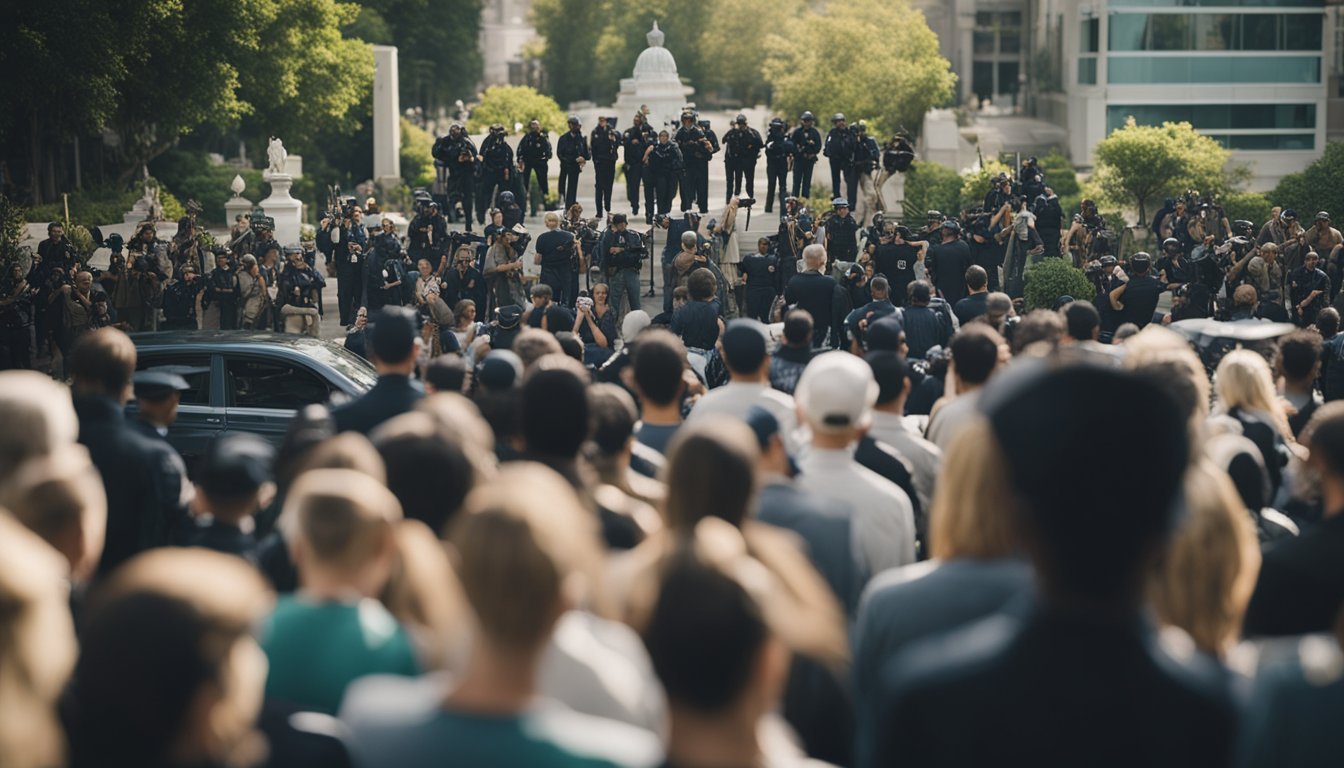Paradise Lost (1993) Review
The Child Murders at Robin Hood Hills - Unveiling the Truth
"Paradise Lost: The Child Murders at Robin Hood Hills" is a thought-provoking documentary that captivates its audience through an intense and heart-wrenching exploration of a horrifying crime. Released in 1996, the film was directed by Joe Berlinger and Bruce Sinofsky and delves into the controversial trial and conviction of the West Memphis Three - three teenagers accused of brutally murdering three young boys in West Memphis, Arkansas, in 1993.
The documentary effectively highlights the flaws inherent in the criminal justice system and raises questions about the impact of media sensationalism on high-profile cases. As the viewer is taken through the intricate details of the case, the film subtly underscores the importance of seeking truth and justice in the face of strong emotions and public opinion.
Throughout the documentary, captivating interviews with the defendants, the victims' families, and various experts are interspersed with footage from the trial and the crime scene, resulting in an immersive experience that challenges preconceived notions of guilt and innocence. "Paradise Lost: The Child Murders at Robin Hood Hills" serves not only as a testament to the power of documentary filmmaking but also as a reminder of the very real consequences that can result from a flawed judicial process.
Background of the Case
In 1993, the small town of West Memphis, Arkansas, was shaken by the brutal murders of three eight-year-old boys – Steve Branch, Michael Moore, and Christopher Byers. The boys were found naked and hog-tied in a wooded area known as Robin Hood Hills.
The initial investigation was hasty and led law enforcement to focus on three local teenagers – Damien Echols, Jason Baldwin, and Jessie Misskelley Jr., who later became known as the West Memphis Three. The prosecution of the case revolved around their presumed involvement in Satanic rituals and the idea that the murders were part of a cult activity.
The trial of the West Memphis Three drew national attention, with many believing that the teenagers were wrongly accused due to misinformation and prejudice. Various celebrities and organizations called for a new investigation to exonerate the accused.
In the midst of this controversy, filmmakers Joe Berlinger and Bruce Sinofsky created the documentary "Paradise Lost: The Child Murders at Robin Hood Hills" in 1996. Their work provided an in-depth look at the case, allowing viewers to make their evaluations of the police operations, legal proceedings, and testimonies of both the prosecution and defense.
As the documentary gained traction, public opinion began to shift, with more people questioning the conviction of the West Memphis Three. This attention helped spark a renewed fight for justice, which eventually led to their release from prison in 2011 after they entered an Alford plea.
Filmmakers
Joe Berlinger and Bruce Sinofsky are the directors behind the critically acclaimed documentary, Paradise Lost: The Child Murders at Robin Hood Hills. Both filmmakers have had an extensive career, working together on multiple documentary features. Their collaborative efforts have earned them numerous awards and widespread recognition in the documentary filmmaking world.
Joe Berlinger is an Emmy-winning and Oscar-nominated filmmaker credited with influencing the true-crime genre through works like Paradise Lost and Brother's Keeper. With over 30 years of experience, Berlinger has directed and produced various feature films, television series, and specials. He often focuses on social justice and crime-related themes, exploring the human condition in a compassionate and provocative manner.
Bruce Sinofsky, who passed away in 2015, was also an Emmy-winning filmmaker. He is best known for his collaborations with Berlinger, beginning with their first documentary, Brother's Keeper, which was released in 1992. Their shared passion for showcasing marginalized and misunderstood people through their empathetic storytelling has created a lasting impact in the world of documentary filmmaking.
The pair's collaboration on Paradise Lost: The Child Murders at Robin Hood Hills resulted in a trilogy of documentaries released over two decades, showcasing the West Memphis Three case. These films played a significant role in bringing national attention to the case and raising questions about the American justice system. The strong visual storytelling and dedication to the subject matter seen in their work are hallmarks of Berlinger and Sinofsky's filmmaking style.
In summary, the filmmakers' partnership, marked by their complementary skills and shared dedication to telling compelling stories, adds depth and authenticity to Paradise Lost: The Child Murders at Robin Hood Hills. Their contributions to the documentary genre continue to be celebrated and influential today.
Synopsis
"Paradise Lost: The Child Murders at Robin Hood Hills" is a gripping documentary that delves into the gruesome murders of three young boys in West Memphis, Arkansas, in 1993. The film examines the flawed justice system and the sensational media coverage that played a significant role in the conviction of three teenagers, now widely known as the West Memphis Three.
The documentary begins by showcasing the horrifying crime scene and the discovery of the victims' bodies. Directors Joe Berlinger and Bruce Sinofsky then turn their focus onto the investigation and subsequent arrest of the accused, Damien Echols, Jason Baldwin, and Jessie Misskelley Jr. The film highlights the lack of concrete evidence against the trio, pointing out the reliance on coerced confessions, dubious witness testimonies, and the defendants' alleged involvement in satanic rituals.
Throughout the documentary, viewers witness the emotionally charged trial and its impact on the families of the victims and the accused. Berlinger and Sinofsky expose the multiple biases and inadequacies in the justice system, as well as the role of media in shaping public opinion and influencing the outcome of the case.
"Paradise Lost: The Child Murders at Robin Hood Hills" is not just an in-depth exploration of a heinous crime, but also a critique of the American justice system and a cautionary tale of how easily it can be swayed by fear and prejudice.
Documentary Presentation and Style
"Paradise Lost: The Child Murders at Robin Hood Hills" is a documentary that utilizes a combination of various techniques to convey its message to the audience. The film employs a mixture of interviews, archival footage, and chilling re-enactments to present an objective and multi-faceted view of the events that occurred.
The directors, Joe Berlinger and Bruce Sinofsky, use a cinema verité style that allows the audience to feel as though they are witnessing the events firsthand. This technique creates a sense of realism and enables the viewer to draw their own conclusions based on the evidence presented.
Throughout the documentary, the camera work remains steady and unobtrusive, capturing the raw emotions of the subjects without intruding on their personal space. The filmmakers also make clever use of natural lighting to enhance the atmosphere of the scenes, adding an element of authenticity to the overall production.
To aid in the storytelling, "Paradise Lost" incorporates graphics and text to provide context and background information. This allows the viewer to become more invested in the case, as they are given the necessary facts and details to better understand the situation.
By using these various techniques in a seamless and effective manner, "Paradise Lost: The Child Murders at Robin Hood Hills" presents a compelling and informative narrative that leaves a lasting impression on its audience.
Critics' Reviews
The 1996 documentary Paradise Lost: The Child Murders at Robin Hood Hills has garnered a significant amount of critical acclaim for its in-depth examination of the trial and convictions in West Memphis, Arkansas. The film's portrayal of the accused teenagers, the legal system, and the community's reaction has left many critics impressed.
Renowned film critic Roger Ebert praised the documentary, highlighting its ability to expose the flaws in the judicial process and the potential for bias in convicting the teenagers. He noted the film's ability to engage viewers and raise questions about the guilt or innocence of the accused.
The New York Times also reviewed the documentary positively, lauding its focus on how fear and hysteria can lead to miscarriages of justice. The publication appreciated the skillful use of interviews, local news reports, and courtroom footage to illustrate a gripping story.
A number of critics have commended the directors, Joe Berlinger and Bruce Sinofsky, for their bold and unflinching look at the events surrounding the case. The filmmakers were praised for allowing viewers to form their own opinions without promoting an overt agenda.
Despite the widely positive reception, some critiques have been leveled against the documentary. A few critics felt that it occasionally veered into sensationalism and, at times, became exploitative of the emotional aspects of the case.
In spite of these criticisms, Paradise Lost: The Child Murders at Robin Hood Hills remains a powerful and thought-provoking watch. The documentary's impact has been long-lasting, raising awareness for the potential injustices faced by the accused and prompting many to question the fairness of the legal system in similar cases.
Impact on Society
The documentary Paradise Lost: The Child Murders at Robin Hood Hills had a significant impact on society, raising awareness about the criminal justice system in the United States and provoking public opinion regarding the possible miscarriage of justice. The controversial nature of the case attracted attention from both domestic and international audiences.
The documentary portrayed the trials and convictions of the three teenagers known as the "West Memphis Three," who were accused of killing three young boys in a crime allegedly linked to Satanic rituals. A major aspect of the documentary that resonated with viewers was the questionable evidence and procedures used during the trials. The case highlighted issues of improper interrogation techniques, questionable witness testimonies, and the potential influence of prejudice on the outcome of the trial.
As a result, the documentary prompted a widespread public response. Many viewers became deeply invested in the case, demanding a review of the evidence and advocating for the release of the West Memphis Three. This public engagement led to the establishment of support groups and the creation of platforms for discussion, such as online forums and social media campaigns. Furthermore, celebrities and well-known artists, like Johnny Depp, Eddie Vedder, and Henry Rollins, publicly expressed their support for the West Memphis Three, which further increased the visibility of the case and the documentary's impact on society.
One of the key outcomes of this increased awareness was the formation of organizations advocating for criminal justice reform and providing resources to address wrongful convictions. The case of the West Memphis Three exemplified the need for a more transparent and accountable justice system, leading to a push for policy changes and the creation of legal support networks to help prevent similar situations in the future.
In conclusion, the documentary Paradise Lost served as a catalyst for raising awareness about the flaws in the criminal justice system and prompted a significant societal response. Its impact extended beyond the immediate case of the West Memphis Three, contributing to broader discussions about the need for reform and support for those wrongfully convicted.
Awards and Recognition
Paradise Lost: The Child Murders at Robin Hood Hills has received significant recognition and numerous awards for its powerful portrayal of a controversial case. Among its accolades, the documentary won the Primetime Emmy Award for Outstanding Informational Series or Special in 1996, highlighting its impact and relevance to a wide audience.
Additionally, the film received critical acclaim, earning a 95% approval rating on Rotten Tomatoes. Numerous critics praised its unbiased approach, allowing viewers to draw their own conclusions about the case.
In 1996, the documentary also triumphed at the Hamptons International Film Festival, capturing the Audience Award for Best Documentary Feature. This award reflects the film's ability to engage audiences and stimulate meaningful discussions.
Furthermore, directors Joe Berlinger and Bruce Sinofsky were honored with the Directors Guild of America Award nomination for Outstanding Directorial Achievement in Documentary in recognition of their skill and dedication in crafting a compelling narrative.
While Paradise Lost: The Child Murders at Robin Hood Hills might not have garnered every award it was nominated for, the documentary remains a powerful example of true-crime storytelling and continues to be widely respected among film and documentary enthusiasts alike.
Follow Up Documentaries
After the release of Paradise Lost: The Child Murders at Robin Hood Hills in 1996, filmmakers Joe Berlinger and Bruce Sinofsky continued to follow the story through producing two other documentaries.
Paradise Lost 2: Revelations (2000) is the first sequel, which delves deeper into the controversial trial and the appeals process. This film highlights the growing doubts surrounding the guilt of the West Memphis Three – Damien Echols, Jason Baldwin, and Jessie Misskelley Jr. The documentary also introduces the "Free the West Memphis Three" movement, a group of supporters rallying for their release and presenting new evidence, including suggestions of alternate suspects.
In 2011, Berlinger and Sinofsky released their final film on the case, Paradise Lost 3: Purgatory. This documentary captures the West Memphis Three's ongoing legal battle and the increasing support from celebrities like Johnny Depp, Peter Jackson, and Eddie Vedder. The film reveals advancements in DNA testing that could not connect the three to the crime scene, along with new expert testimonies questioning the validity of the initial forensic evidence.
Throughout the series, these follow-up documentaries provide an in-depth look into the complexities of the American criminal justice system and the challenges faced by those wrongfully convicted. They continue to expose the flaws, biases, and inconsistencies within the investigation and trial of the West Memphis Three, ultimately leading to their release under the Alford plea in 2011. Together, the Paradise Lost series has shed light on a tragic miscarriage of justice and paved the way for the ongoing pursuit of the true perpetrator behind these horrifying crimes.
Legacy of Paradise Lost
The documentary Paradise Lost: The Child Murders at Robin Hood Hills had a profound impact on the public's perception of the criminal justice system in the United States. The film showcased the flaws in the investigation, trial, and conviction of the West Memphis Three, revealing deep-seated issues regarding the treatment of suspects, media influence, and the presumption of innocence.
Paradise Lost brought public attention to the cases and played a critical role in generating support to free the West Memphis Three. The film explored the scapegoating of the teenage defendants based on their appearance and interest in heavy metal music. By presenting the story from the perspective of the accused, the documentary forced viewers to question the reliability of the evidence and the impartiality of the trial, raising doubts about guilt and fueling calls for a retrial.
As a result of the documentary's powerful storytelling, many celebrities and civil rights advocates took up the cause of the West Memphis Three, including Johnny Depp, Henry Rollins, and Eddie Vedder, who helped to mobilize public support and fund the legal defenses for the accused. Celebrities organized benefit concerts and spoke out publicly in support of the West Memphis Three, contributing to the growing international protest against the verdict.
The documentary also had a transformative effect on the true-crime genre as a whole, paving the way for future documentary films and television series that scrutinize the criminal justice system and explore potentially wrongful convictions. Examples include Making a Murderer and The Jinx, which share the same investigative spirit and passion for uncovering the truth. The success of Paradise Lost demonstrated the power of storytelling and its ability to create change in a world where justice can sometimes falter.
In summary, the legacy left behind by Paradise Lost: The Child Murders at Robin Hood Hills is one of immense significance. The film exposed the flaws of the American criminal justice system, raised public awareness about the West Memphis Three, and paved the way for future examinations of wrongful convictions. The film serves as a reminder of the importance of the presumption of innocence, the power of storytelling, and the need to maintain a vigilant eye on the workings of the justice system.








